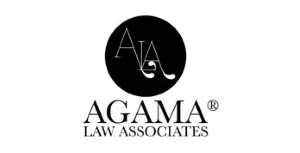- within Privacy topic(s)
- with readers working within the Retail & Leisure industries
- within Media, Telecoms, IT, Entertainment, Transport and Technology topic(s)
- with Senior Company Executives, HR and Finance and Tax Executives
Last month, the CEO of PayPal made headlines with a bold statement: imagine a world where your Indian UPI wallet could seamlessly buy a product in Brazil or send money to a friend in France.
The soundbite was powerful. The headlines called it "UPI goes" But the real question is: Can global wallets be legally interoperable before they become technically interoperable?
Why Growth-Stage Fintechs Can't Wait for Regulatory Clarity
India's fintech ecosystem is maturing beyond domestic payment rails. Series A and B companies are increasingly fielding inbound interest from Southeast Asian markets, Middle Eastern sovereign wealth funds, and European strategic investors who view India as a fintech laboratory.
But jurisdictional compliance hasn't kept pace with expansion ambitions.
Here's the disconnect we observe in our practice:
•Domestic success metrics don't translate: Your RBI-compliant wallet architecture becomes a liability when Singapore MAS or UAE Central Bank begins due diligence.
•Investor expectations evolve: Growth-stage funding rounds now include cross-border expansion clauses that trigger immediate compliance obligations.
•Strategic partnerships demand legal interoperability: Enterprise clients and B2B partnerships require compliance certification (formal or informal) across multiple jurisdictions before technical integration.
•Data protection enforcement gaps: The state of data protection enforcement in India operates at a much lesser scale than in Europe, which creates additional challenges when aligning with stricter international standards.
In our experience advising Series A+ fintechs, legal architecture limitations become the primary constraint on international expansion, not technical capabilities.
The Due Diligence Reality for Mid-Market Investors
When evaluating Indian fintech investments, institutional investors increasingly scrutinize cross-border compliance readiness—even for purely domestic businesses.
Why this shift matters:
•Portfolio construction: LPs expect emerging market fintech investments to have global scaling potential, not just domestic market capture.
•Exit strategy protection: Strategic acquirers discount valuations when regulatory compliance requires complete restructuring.
•Risk management: Cross-border regulatory violations can trigger portfolio-wide compliance reviews and LP reporting requirements.
We've seen multiple growth-stage deals restructured or repriced because target companies treated international compliance as "post-expansion" planning rather than foundational architecture.
What Does Cross-Border Readiness Look Like in Practice?
Based on our advisory work with growth-stage fintechs preparing for international expansion, compliant architecture requires:
1. Regulatory Mapping Beyond Sandbox Thinking
It involves conducting jurisdiction risk assessments to identify the markets where an investor base, strategic partners, or potential acquisition targets operate. It also requires developing a compliance timeline, recognizing that meaningful international licensing often has a lead time of 12 to 24 months. In addition, organizations must allocate capital for legal infrastructure, budgeting approximately 8 to 12 percent of funding rounds for compliance architecture rather than focusing solely on product development.
2. Strategic Partnership Legal Framework
Enterprise customers increasingly require multi-jurisdiction compliance certification before entering into partnership agreements. Payment processors and banking partners impose international compliance standards even on operations that are primarily domestic. To remain prepared for potential acquisitions, companies need to maintain legal documentation standards that meet the requirements of international strategic buyers.
3. Investor Relations Alignment
Disclosure accuracy is essential, ensuring investor updates reflect actual cross-border exposure rather than a theoretical domestic focus. Board governance should include compliance reporting that satisfies both domestic and international investor standards. Companies should also maintain a legal architecture that supports strategic exits to international acquirers without requiring a major restructuring.
Common Structural Mistakes in Growth-Stage Funding
In our practice, we observe recurring patterns where founders and early investors underestimate international compliance complexity:
•Sandbox mentality: Treating pilot international features as "experiments" without legal protection for business model validation
•Compliance deferral: Using growth funding primarily for customer acquisition while deferring regulatory infrastructure investment
•Documentation gaps: Maintaining domestic-only legal standards while pursuing international strategic partnerships
•Investor misalignment: Accepting growth capital from international investors without harmonizing compliance expectations
Strategic Implications for Fund Managers
For institutional investors evaluating Indian fintech opportunities, cross-border compliance readiness serves as an indicator for management sophistication and scaling potential.
Investment thesis considerations:
Teams that proactively address international compliance demonstrate operational maturity beyond pure product development. Fintechs with robust legal architecture can support cross-portfolio partnerships and strategic initiatives. Companies with international compliance readiness command premium valuations from strategic acquirers
We advise fund managers to incorporate compliance architecture assessment into investment committee processes, particularly for companies with international expansion potential or strategic partnership dependencies.
Practical Framework for Growth-Stage Compliance Planning
For companies raising Series A+ funding while maintaining international expansion optionality:
Immediate (0-6 months)
•Legal architecture audit: Comprehensive review of current compliance framework against international standards •Regulatory roadmap development: 24-month timeline for key market entry requirements • Investor communication alignment: Harmonizing disclosure standards across domestic and international stakeholder expectations
Medium-term (6-18 months)
•Strategic partnership legal framework: Developing compliance certification processes for enterprise client requirements •International advisory development: Engaging regulatory counsel in target markets for partnership and expansion planning •Documentation standardization: Implementing legal standards that satisfy both domestic operations and international due diligence • Training programs: Delivering structured compliance training for internal teams and partners to ensure consistent understanding of evolving international requirements.
Long-term (18+ months)
•Market entry execution: Implementing pre-planned regulatory strategy for international expansion • Strategic exit preparation: Maintaining legal architecture that supports acquisition by international strategic buyers •Portfolio company collaboration: Leveraging compliance infrastructure for cross-portfolio strategic initiatives
The content of this article is intended to provide a general guide to the subject matter. Specialist advice should be sought about your specific circumstances.


